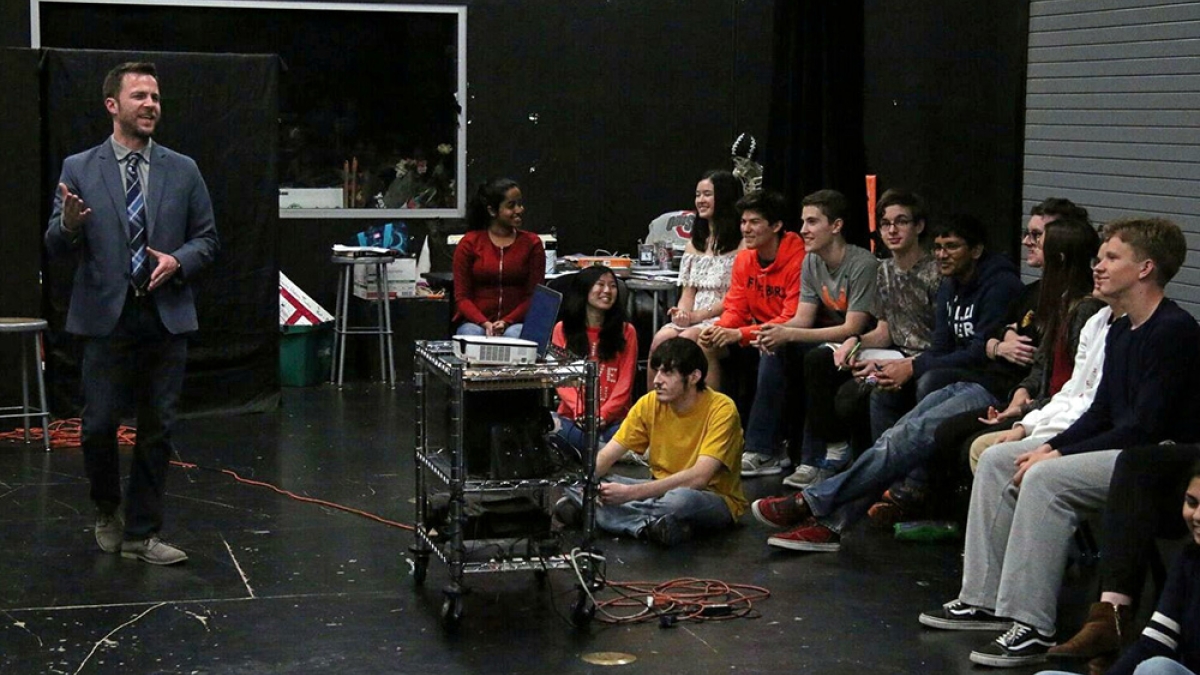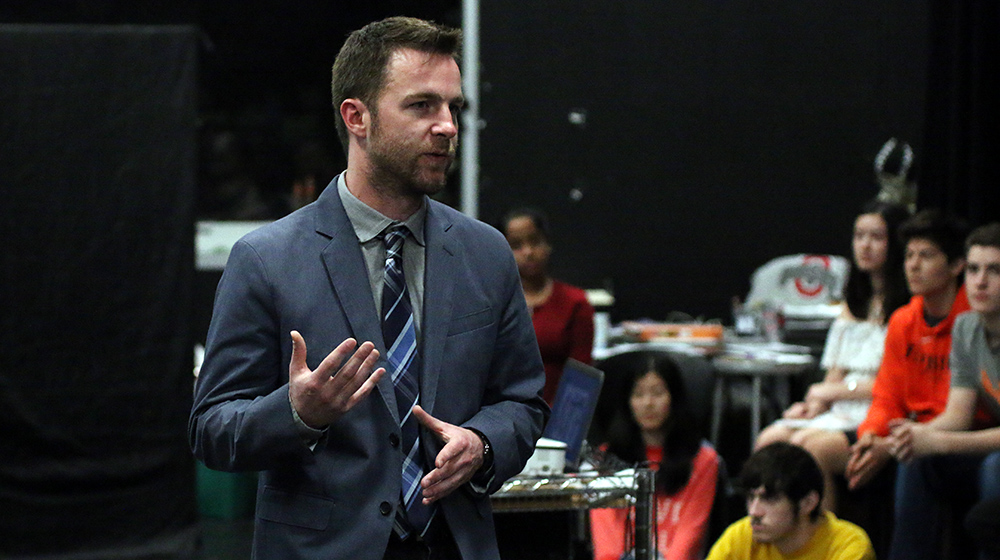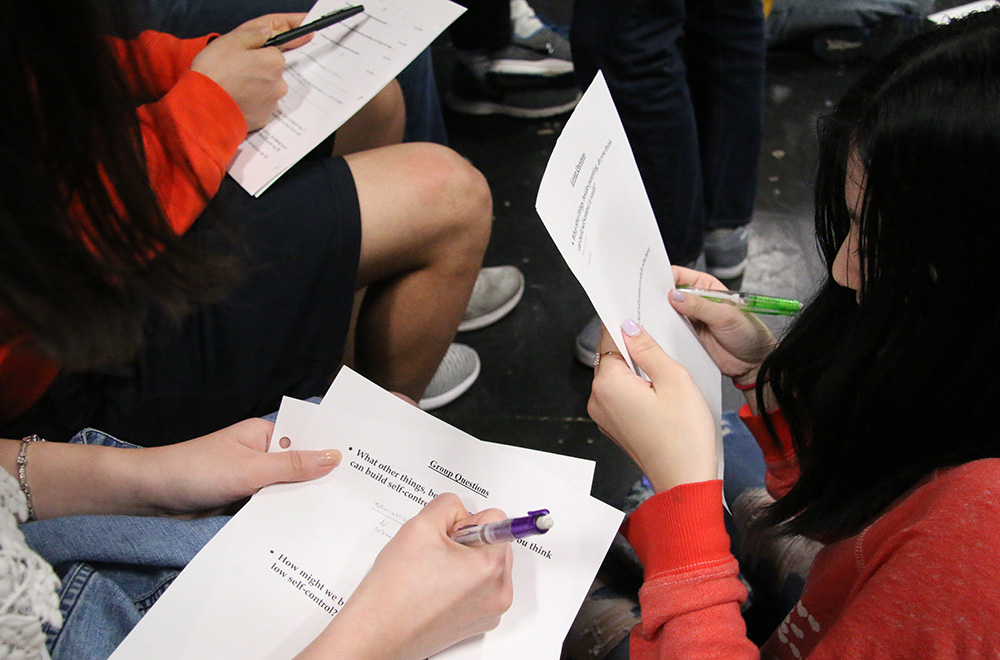ASU criminology professor educates high school honor students on prison issues

Kevin Wright, an associate professor in the ASU School of Criminology and Criminal Justice, talks to BASIS Phoenix National Honor Society high school students about ways in which researchers are working on ways to reduce the number of former inmates who end up back in prison.
Students in the BASIS Phoenix National Honor Society got an in-depth lesson on prison and prison reform from ASU criminologist Kevin Wright. An associate professor in the School of Criminology and Criminal Justice, Wright was invited to the northeast Phoenix charter school by Simran Sall, a sophomore who heard Wright speak as part of a summer program with ASU’s Barrett, the Honors College.
“Prison systems are a huge part of our community, even though a lot of people don't really think about it in their everyday life,” said Sall, who is vice president of BASIS Phoenix National Honor Society. “And I thought having Dr. Wright here today would really open up these individuals’ minds about what is really going on and and how we can give back and improve upon it.”
The criminologist laid out the facts about prison both across the United States and in Arizona, telling students that 95 percent of those we send to prison come back to our communities. He and other professors at ASU are working on ways to reduce the number of people who end up back in prison.
Wright also directs ASU Inside-Out Prison Exchange, a program that allows select college students to learn alongside inmates at the Arizona State Prison Complex in Florence. The course provides students the ability to learn from people who have lived what they are studying in the criminal justice system.
In the after-school meeting, Wright stressed to BASIS Phoenix honor students that you don’t have to be a criminologist to effect change.
“You know one of the great things about being a criminologist is that it affects everybody. Everybody can understand it,” said Wright. “They might have family members who are likely affected by the system — aunts and uncles, brothers and sisters.”

Kevin Wright, an associate professor in the ASU School of Criminology and Criminal Justice, talks to Phoenix BASIS honor society students about prisons both across the United States and in Arizona.
Wright questioned students on why people end up in prison. He told them that despite what they see on TV, many people who commit crime put very little thought into their actions. He attributed much of the problem to low self-control.
To show what he meant, Wright handed out a questionnaire for students to measure their own level of self-control. Questions included whether they are good at resisting temptation and whether they act without thinking through all the consequences.
“The goal was to show them, ‘Hey, now you can see — here are the triggers — here are the things that you are trying to figure out,’” Wright said.
After filling out the self-control questionnaire, students met in groups to discuss the role parents play in helping youth build self-control. They also talked about how they can help adults with low self-control.

Members of the BASIS Phoenix National Honor Society fill out a questionnaire as part of a discussion on self-control.
“I think it's going really well,” said Sall. “Everyone seems really interested in the meeting.”
Wright thinks the honor society students can make a difference.
“I love that they had a lot of energy,” said Wright. “They are staying after school to learn this. It’s cool to see just how invested they are in this topic.”
More Arts, humanities and education

ASU instructor’s debut novel becomes a bestseller on Amazon
Desiree Prieto Groft’s newly released novel "Girl, Unemployed" focuses on women and work — a subject close to Groft’s heart.“I…

‘It all started at ASU’: Football player, theater alum makes the big screen
For filmmaker Ben Fritz, everything is about connection, relationships and overcoming expectations. “It’s about seeing…

Lost languages mean lost cultures
By Alyssa Arns and Kristen LaRue-SandlerWhat if your language disappeared?Over the span of human existence, civilizations have…

